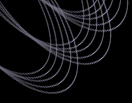
| Home |
| Where to Start |
| News and Updates |
| Tutorials |
| Data Products |
| Data Access |
| Sky Coverage |
| Instruments |
| Data Flow |
| Algorithms |
| Glossary |
| Help and Feedback |
| Search |
 |
Getting all spectra and corresponding imaging dataFor your convenience, we publish a variant of the DR2 spectroscopic data set which has all spectra and corresponding object lists entries and atlas images. It consists of the following set of file for each plate of 640 fibers:
The data model for a You can access these files, as well as catalogs of just the redshifts, in bulk at the following locations: The full set of plates
Just the redshiftsThere are separate catalogs by spectroscopic classification:Galaxies
Quasars
Note that there is a vetted DR1 quasar catalog presented by Schneider et al. 2003. The information contained in that catalog supersedes the information contained in all other data sources. We strongly recommend cross-checking the list given here against the Schneider et al. catalog. Future data releases will incorporate the information from the vetted quasar catalogs. StarsObjects classified as stars stars-dr2.fit.gz, 44M Unknown and sky fibersObjects whose type could not be identified, and sky fibers used to perform sky subtraction from the spectra. unks-dr2.fit.gz, 27.6M What about objects not observed due to fiber collisions?You will want the tiling information. Last modified: Thu Apr 15 10:29:15 CDT 2004 |